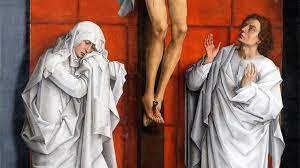
We thank God for the blessings we have received from him due to the Tuesday light prophetic weekly article. I hope you are sharing these articles with someone. This week we shall consider the choice Jesus made after his resurrection.
Before he ascended to heaven, he often appeared to his disciples (John 20:1; Matt 28:9; Luke 24:13-30). One such was when he appeared to Peter and seven other disciples at the sea of Galilee (John 21). The only part of John 21 post-resurrection appearance for our consideration in this edition was the moment Jesus said to Peter, feed my sheep (John21:17).

Going by the antecedent of Peter, I would have questioned the choice of the master if I were with him. This Peter was the one who denied Jesus three times before the cock crew. This same Peter attempted to return the disciples to fishing after the resurrection of Jesus(John21:3). Yet, Jesus handed over the leadership of the New Testament church to him.
I want to say that I would have suggested John the beloved to Jesus. In terms of closeness to the Lord, he was the closest. At the cross, Jesus handed over his mother to John the beloved. I believe, if Jesus were to seek your opinion, you would insist John is the better candidate for the assignment. I may say Peter’s past shows that he is unreliable.
Jesus knows better, and Peter was the right man for the job. I guess that was the reason Jesus said to him, I have prayed for you in Luke22:32, after telling Peter about the attempt of the Devil to sift him away.
The objective of this article is not to indulge one another in ungodliness. Instead, it is to caution us from judging brethren based on their past. This same Peter that betrayed Jesus witnessed to many, and three thousand men were saved.

Discipline in the body of Christ, Sanctification, holiness and consecration are not negotiable. We should not zone people out of opportunities to be part of the master’s service not because of the present but also in their past. Remember that the book of Philemon was written by Paul the Apostle to assure the Philemon that his servant (Onesimus) who was ungodly in the past is now in Christ. Paul did not attempt to downplay the offense of Onesimus. Paul did not even downplay restitution hence he wrote:
If he hath wronged thee, or oweth thee ought, put that on mine account; (Philemon 1:18)

Paul urged Onesimus thus:
No longer as a slave but better than a slave-as a dear brother. He is especially dear to me, but even more so to you, both as a person and as a Christian.
If you think of me as your partner, welcome him as you would welcome me. (Philemon 1:16-17)

Leave a Reply